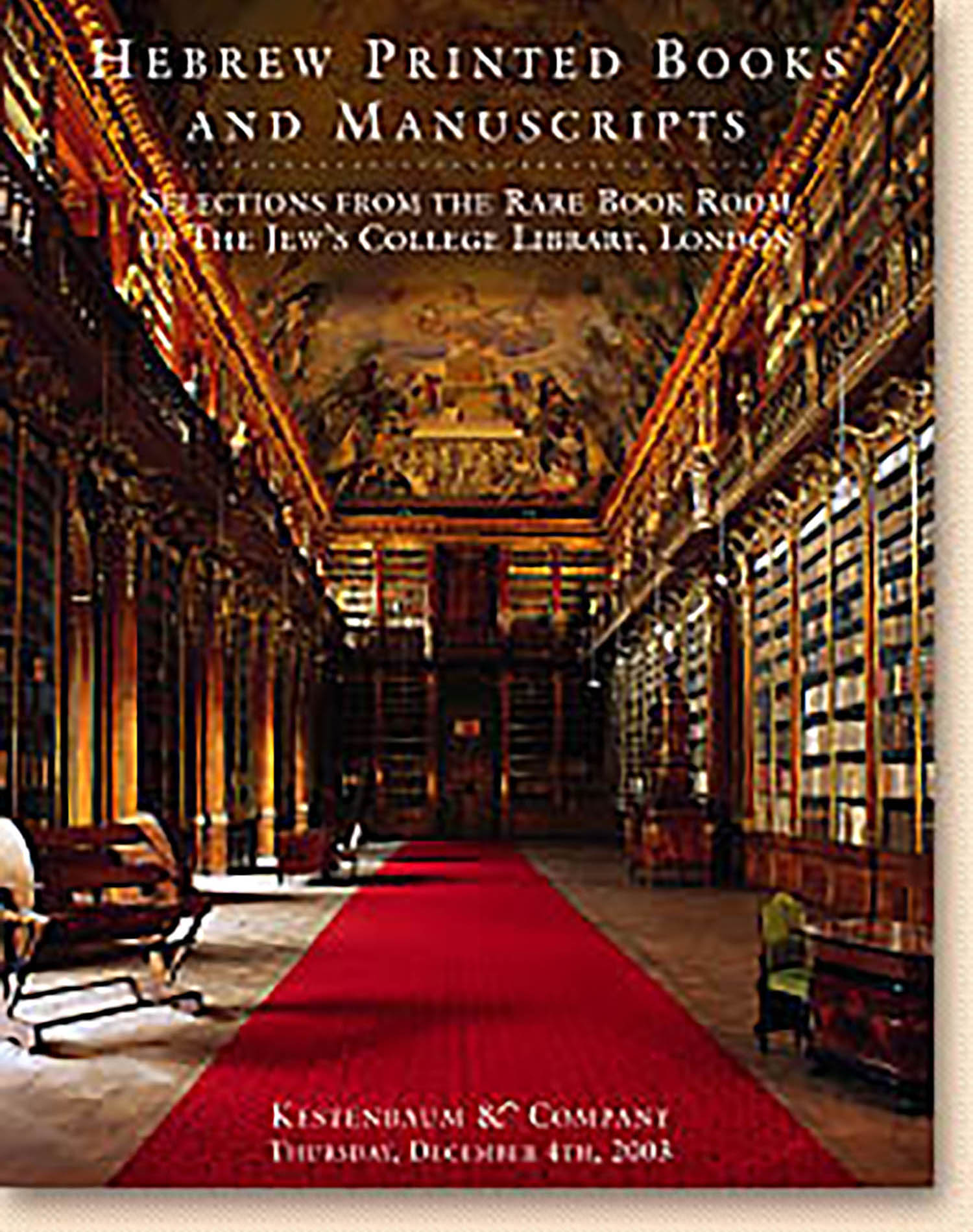RaLBaG). Milchamoth Hashem [“Wars of the Lord”: philosophy]

AUCTION 21 |
Thursday, December 04th,
2003 at 1:00
Kestenbaum & Company Holds Inaugural Auction of Hebrew Printed Books & Manuscripts at Their New Galleries
Lot 153
LEVI BEN GERSHON (GERSONIDES/
RaLBaG). Milchamoth Hashem [“Wars of the Lord”: philosophy]
Riva di Trento: Jacob Marcaria 1560(-1561)
Est: $800 - $1,200
PRICE REALIZED $900
Milchamoth Hashem is the classic work of Gersonides, whose philosophy is even more Aristotelian than that of his predecessor Maimonides. Levi ben Gershom (1288-1344), a native of Languedoc in the south of France, was a true polymath, excelling in the fields of Biblical exegesis, philosophy, mathematics and astronomy. There are even a few halakhic responsa of Gersonides.
The last distinguished Aristotelian not only in the Jewish world, but in all of Medieval Europe, Gersonides was also the only one among the Jewish disciples of Aristotle who accepted the entire Aristotelian system, including those particulars that seemingly contradict aspects of the Jewish world view. As a philosopher, Gersonides was not satisfied with the solutions the Arabic and Jewish Aristotelians had presented to the problems that most disturbed medieval minds, namely the immortality of the soul, the nature of prophecy, divine omniscience and providence, the nature of the heavenly spheres and the question of the eternity of matter. In Milchamoth Hashem, a work on which he laboured for twelve years, he attempts to provide his own answers to these problems. For a detailed analysis of Gersonides’ inquires in Milchamoth Hashem and critical comparison to Aristotle’s beliefs, see I. Zinberg, A History of Jewish Literature, Vol. III, pp.129-139.
Of late, there is renewed interest in Gersonides’ philosophy, as well as his astronomy and mathematics. Charles Touati translated the Milchamoth into French, while Seymour Feldman produced an English version brought out in three volumes by the Jewish Publication Society of Philadelphia (1994-1999). In 1993, several distinguished scholars contributed to G. Freudenthal ed., Studies on Gersonides: A Fourteenth-Century Jewish Philosopher-Scientist (Brill).
